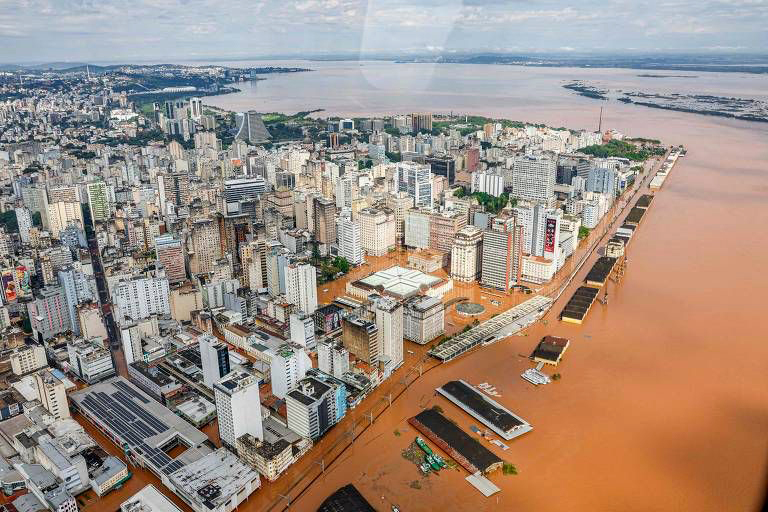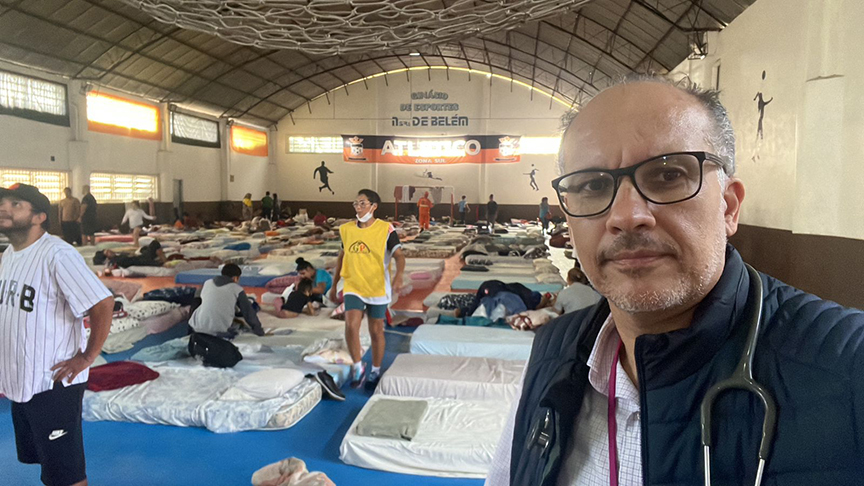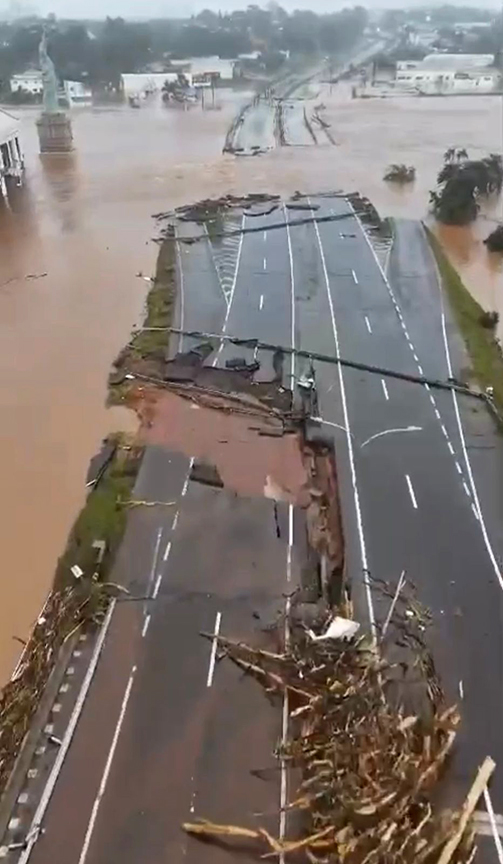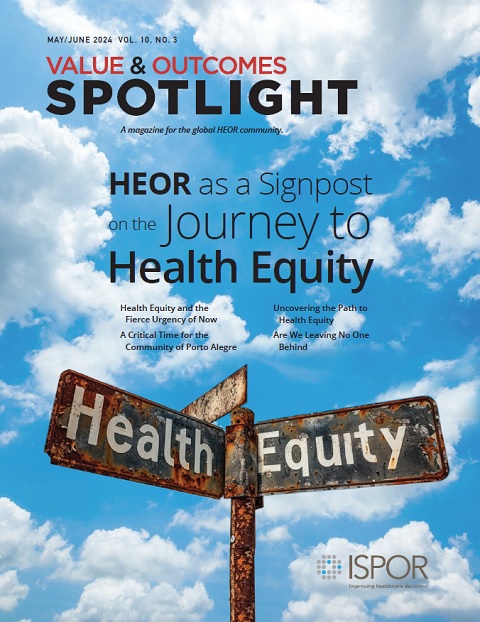A Critical Time for the Community in Porto Alegre: Mattresses on the Floor
Stephen Stefani, MD, Porto Alegre, Brazil

According to meteorologists, the sequence of extreme events began with a persistent heat wave in the Southeast and Central-West regions of Brazil. This phenomenon, combined with wind currents and humidity coming from the Amazon and the effects of El Niño, created the ideal conditions for the formation of intense rains that culminated in tragedy.
Some cities issued a red alert due to the possibility of large amounts of rain, but the volume of water exceeded 800 millimeters in more than 60% of the region. In a matter of hours, rivers and lakes violently overflowed, catching thousands of people in their homes by surprise.
I received a call in the early hours of that Sunday from one of the community leaders from a region in the extreme south of the city where I live, almost 20 km from the central region. Porto Alegre is the capital of the state of Rio Grande do Sul with a population of 1.2 million, but surrounded by cities that make up 3 times that number. The call for help came in a succinct message over the phone: “I need a doctor at the Church’s community center.”
Having worked in medicine for 30+ years, it was the most shocking and saddest scene I ever witnessed. There were dozens of people (I later discovered there were 128) and an almost equal number of pet dogs and cats. People were scared and confused, lying on mattresses on the floor. Each mattress was surrounded by a few bags with personal belongings such as clothes and coats and people were taking a brief inventory of the items they were able to save from the flood.

I tried to organize an intuitive priority queue and list what the most urgent needs were. Practically one-third of the people used some chronic medication, and some only knew that it was a “white pill” for blood pressure or any other chronic disease. The only thing I was sure of was that I would need help. If, on the one hand, the pain of devastation destroys lives and families, the light of solidarity palpably represents the compassion that comes from all sides. I made a request for help to a group of friends via WhatsApp. Within minutes, friends and colleagues arrived. Without time to exchange many words, they silently shook their heads and got to work. A few minutes later, I received a call from another colleague who was already at the local pharmacy asking what medicines he needed to buy and bring to us. And within a few hours, we had a team assembled with several volunteer professionals, established contact with the local health authorities (which were overloaded), and stocked a reasonably solid pharmacy built by donations. All people were treated and received tetanus vaccinations; in some cases we chose—despite the low level of scientific certainty—to offer prophylaxis for leptospirosis in cases that we judged to be high risk (a few days later, health authorities issued instructions that advised the same treatment approach we chose to use).
"If the pain of devastation destroys lives and families, the light of solidarity palpably represents the compassion that comes from all sides."
 Perhaps most importantly, everyone was given a hand on the shoulder and an attempt to make them smile. Other shelters adopted very similar strategies, but it took us a few days to recognize that it was a system that could have been more productive with coordinated integration. Even the transfer and isolation of some patients, which in principle could make sense, could add unintended risks due to the very complex movement in a city that had up to 85% of its area compromised by flooding, lack of drinking water, or electricity. The impasse raises the need for reflection and consideration of the decisions and priorities made—driven by the urgency of the situation in an extreme context—by the professionals and volunteers involved regarding the use of scarce resources. A complex tragedy like this is not random, nor does it have simple solutions. Somehow, it accelerates the need to address the issue in an agile and pragmatic way.
Perhaps most importantly, everyone was given a hand on the shoulder and an attempt to make them smile. Other shelters adopted very similar strategies, but it took us a few days to recognize that it was a system that could have been more productive with coordinated integration. Even the transfer and isolation of some patients, which in principle could make sense, could add unintended risks due to the very complex movement in a city that had up to 85% of its area compromised by flooding, lack of drinking water, or electricity. The impasse raises the need for reflection and consideration of the decisions and priorities made—driven by the urgency of the situation in an extreme context—by the professionals and volunteers involved regarding the use of scarce resources. A complex tragedy like this is not random, nor does it have simple solutions. Somehow, it accelerates the need to address the issue in an agile and pragmatic way.
Globally, the health of the population is not determined solely by the health sector, nor are climate policies the exclusive responsibility of the environmental sector. Greater intersectoral collaboration is needed to open development paths that consider robust adaptation to climate change. This global threat to health, perhaps the greatest challenge facing the world in the 21st century, exposes the urgency of concrete and coordinated actions, both locally and globally, to mitigate its devastating impacts. This specific event affected whether through flooding, lack of electricity, or drinking water, approximately 1.5 million people. There are more than 500,000 people left homeless and 81,000 in shelters. More than 160 people died and there are still more than 100 people missing, by June. The historic center of the city, including the Centro Cultural Santander (where the meeting of the Brazilian chapter of ISPOR was held in 2023), was left standing with water levels reaching half way to the ceiling on the second floor!
"This global threat to health, perhaps the greatest challenge facing the world in the 21st century, exposes the urgency of concrete and coordinated actions, both locally and globally, to mitigate its devastating impacts."
The region faces a bleak scenario, without even being able to assess the real economic and social impacts in the medium- and long-term. The aftermath of this catastrophic event should add more challenges for a country that is trying to find solutions to a health system with large gaps and growing inequities. Countries need public policies that simultaneously increase climate resilience, reduce social inequalities, and improve population health. We cannot continue treating patients lying on mattresses on the floor.
How to Help
Devastating floods have recently impacted Porto Alegre and the surrounding areas in Brazil’s Rio Grande do Sul state, severely affecting nearly 1.5 million people and creating significant health challenges, including lack of access to clean water and medical care. ISPOR’s Brazil Chapter past-president, Dr Stephen Stefani, has been at the forefront of coordinating healthcare responses and ensuring the well-being of those displaced by the floods. His work in organizing these services is both impactful and admirable. For those wishing to offer assistance, resources, or support, please contact the ISPOR Brazil Chapter at secretaria@ispor.org.br.

